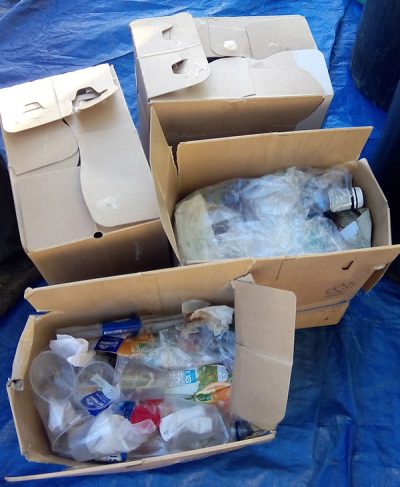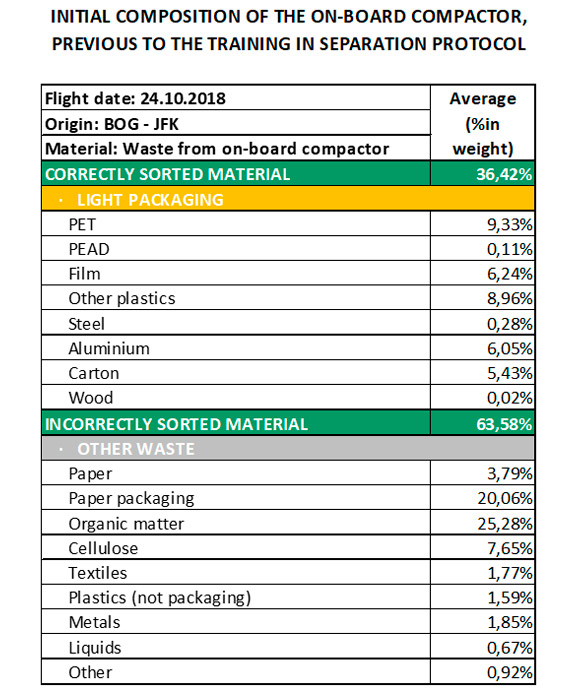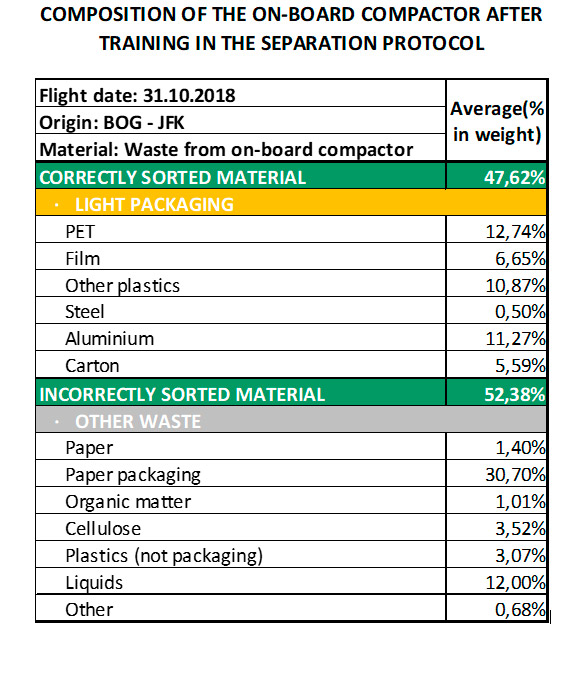During the month of October, a series of on-board waste separation tests were carried out on international non-EU flights.
The separation protocol consists of a series of good practices for the correct use of on-board compactors.
These are small compacting boxes where lightweight packaging waste that has not contained food of animal origin (mainly plastic bottles and cups, cans and cartons) must be deposited so that they can be recycled.

Waste placed in the compactors
Specifically, two types of tests were carried out:
1. Evaluation of the quality of the separation by the crew once the separation protocol has been explained.
A total of 7 flights with different origins were chosen (Panama, San Jose, Miami, New York, Buenos Aires and Bogota). The crew received instructions on how to separate the waste and the compactors and the waste trolleys were identified with labels. At the arrival of the flights, the waste deposited in the on-board compactor (light packaging) and in the waste trolley (other waste) was weighed and the quality of the separation made by the cabin crew was evaluated.
These are the most remarkable conclusions:
2. Comparison of the use of the compactor on flights with and without separation protocol.
Two destinations were chosen, New York and Bogotá, and the type of waste deposited in the on-board compactor was studied. In the first place, the waste from both flights was analyzed, without giving any special indication to the crew. And a week later, on the same flights, the crew was trained in the waste separation protocol.
These are the results obtained:
In the flights in which the crew is trained in the separation protocol there is an improvement in the proportion of correctly sorted waste, specifically 11%. Being the most frequent errors place paper-cardboard cups and bottles with liquid in the compactor. However, when the cabin crew is not trained, there is more waste poorly sorted, highlighting the organic matter, waste that should not be placed in this container as it contaminates the recyclable waste.


